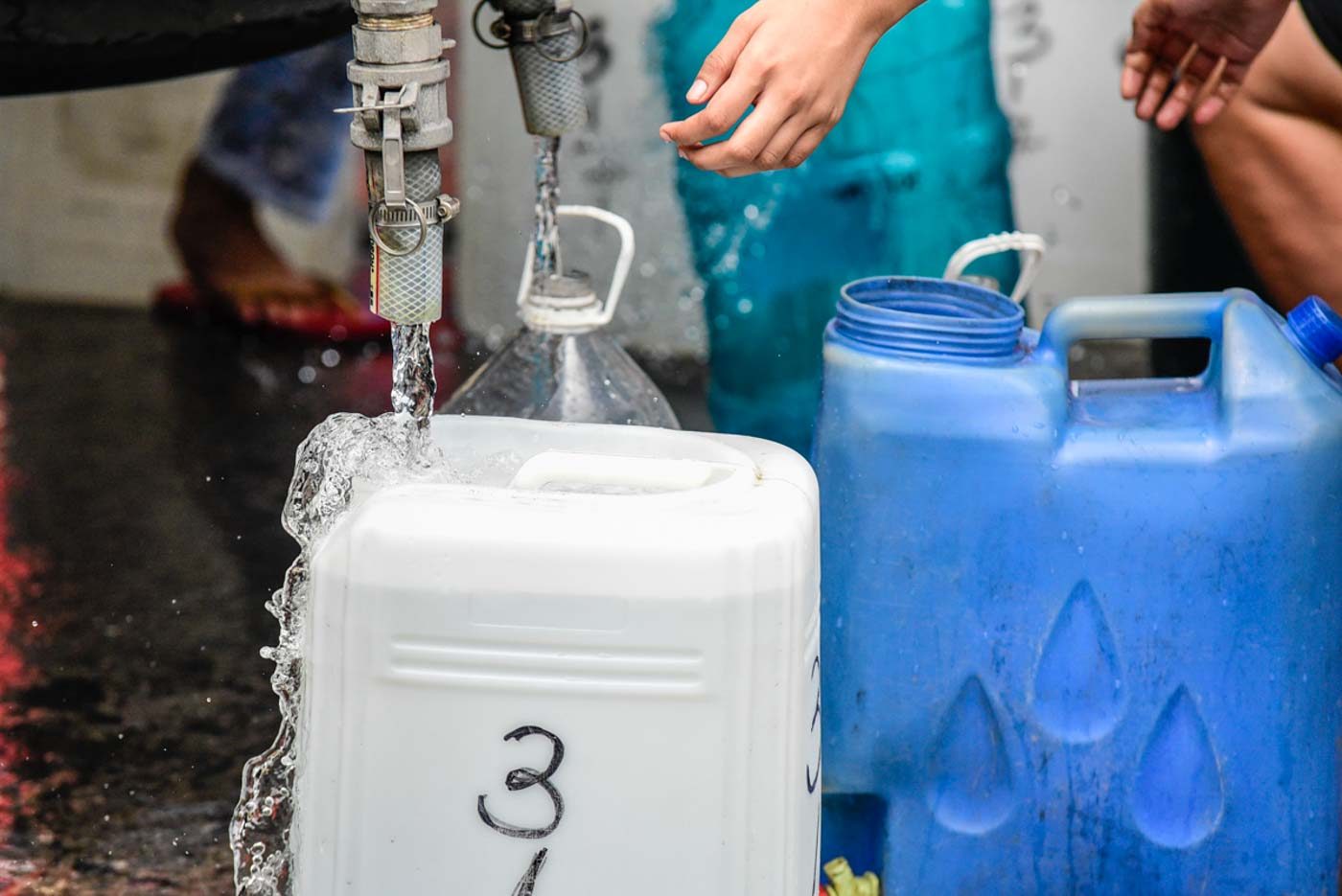SUMMARY
This is AI generated summarization, which may have errors. For context, always refer to the full article.

MANILA, Philippines (UPDATED) – Manila Water said it is willing to come up with a “mutually acceptable” deal with the government in implementing the arbitration ruling which compels the latter to pay the company P7.4 billion.
The Ayala-led company said on Wednesday, December 4, that it met with Finance Secretary Carlos Dominguez III before Singapore’s Permanent Court of Arbitration’s decision came out. The ruling stems from Manila Water’s complaint that the government unjustly slashed water tariffs, which led to losses.
“The arbitral award issued in our favor is for acts in breach of the procedure committed by officials of the previous administration, not the Duterte administration,” Manila Water said.
The statement comes a day after President Rodrigo Duterte launched tirades against Ayala Corporation and Manny Pangilinan-led Maynilad Water Services over allegedly onerous provisions in water concession agreements.
“Secretary Dominguez acknowledged our proposal to work very closely with his office to find a mutually acceptable scheme to address the award,” it added.
Fast facts
The arbitration ruling that led to Duterte slamming Metro Manila’s water concessionaires stems all the way back to the ’90s when the government decided to seek the private sector’s help to distribute water. Here are some facts:
In 1997, the Ramos administration solicited bids for concession agreements with the Metropolitan Waterworks and Sewerage System (MWSS) to address the water crisis in Metro Manila. The MWSS was unable to maintain viable operations then due to technical inefficiencies and enormous financial debts.
The deal was determined by the government and bidded out on a take it or leave it basis.
Manila Water got the deal as the service provider of Metro Manila’s East Zone by offering the lowest fee to serve as concessionaire of the MWSS. The concession agreement would only last until 2022, but the Arroyo administration extended that until 2037.
In the form of water tariffs, the government paid Manila Water for the services.
The company said it spent over P166 billion to improve water and wastewater services, installed over 5,500 kilometers of pipes, and built 2 new filter plants, 32 new reservoirs, 113 pumping and booster stations, 40 additional wastewater treatment facilities, and 5 times more sewer network capacity to improve the MWSS facilities in the East Zone.
The extension of the concession agreement required Manila Water to spend an additional P458 billion for water supply and wastewater requirements.
“Because MWSS decided to pay our services and reimburse our costs with the water tariff that we collect, the concession agreement contains a procedure for the adjustment of water rates in accordance with the MWSS Charter,” the company said.
However, Manila Water sought arbitration in 2015 after the government failed to honor its claim amounting to P79 billion from 2015 to 2017, as the latter did not allow the company to raise tariffs. The government even slashed its basic utility charge by P2.77 per cubic meter.
Manila Water won that arbitration case just in November 2019.
Drilon’s denial
Meanwhile, Senate Minority Leader Franklin Drilon denied President Duterte’s claim that he was part of the framers of the 1997 agreement of the government with water concessionaires Maynilad and Manila Water.
In a statement on Wednesday, Drilon said that he “did not in any manner participate in the drafting of the concession agreement.”
Drilon was the justice secretary from 1992 to 1995 during the Ramos administration. He quit this post to run for the Senate in 1995, before then-president Fidel Ramos decided to open the water distribution system to the private sector. – with a report from Aika Rey/Rappler.com
Add a comment
How does this make you feel?
There are no comments yet. Add your comment to start the conversation.